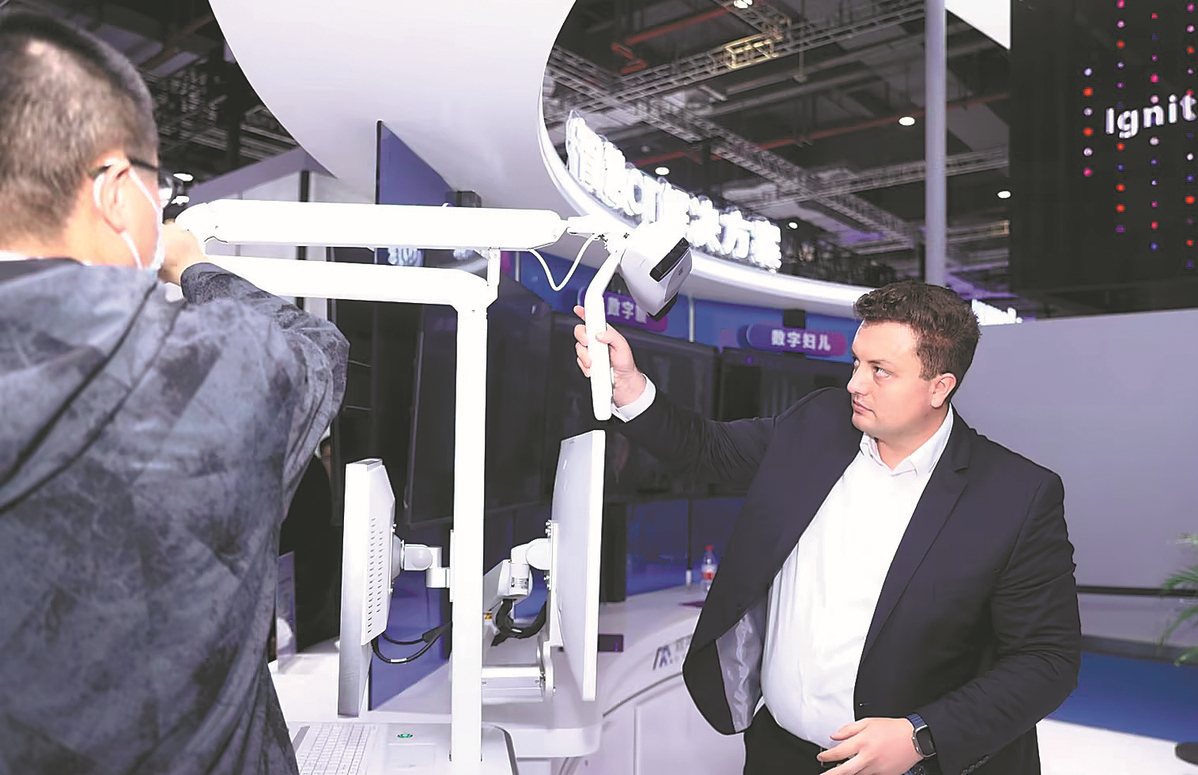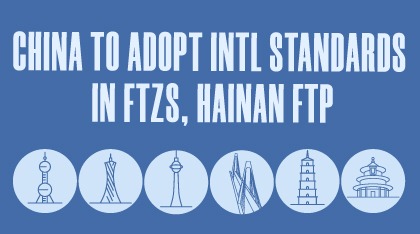
With the advancement of artificial intelligence, medical devices are increasingly able to provide more accurate and personalized services to patients, further enhancing their overall healthcare experience.
On a typical morning in May, in the health management center at Xiaotangshan Hospital in Changping district, Beijing, people line up to experience the latest AI-empowered physical examinations.
With AI-assisted diagnostic technology, using a low-dose computerized tomography scan, physicians are able to assess patients' risks of contracting coronary heart disease and lung tumors. The whole examination process is efficient and smooth.
Xiaotangshan Hospital is among the eight hospitals in Changping that have adopted the AI-empowered assisted diagnosis system — "Digital Body".
According to Shukun Technology — the system's provider — AI facilitates the early screening of asymptomatic populations and intervention of potential risks. In this way, doctors may have better knowledge about patients and offer more accurate and personalized treatment solutions.
From self-developed surgical robots to intelligent ultrasound systems, the company has gradually shifted from a single software platform to a comprehensive intelligent solutions provider combining hardware and software.
Currently, Shukun's Digital Body covers full patient services from disease screening, to diagnosis and treatment planning processes, and has been applied in smart imaging, smart surgery and smart health management fields.
In January 2023, Shukun signed a strategic partnership with Wuzhong district in Suzhou, Jiangsu province, using Digital Body in 13 medical institutions in the district. Currently, the local government and Shukun are joining hands to offer tests of 10,000 person-times in the district annually.
Data from Shukun showed that by the end of 2023, compared to levels before application, the system had quadrupled CT test volumes in the 13 medical institutions in Wuzhong to 190,000 person-times. With the normalized application of the system, it is expected to save over 11 million yuan ($1.5 million) in screening costs for the district every year.
Featuring assisted diagnosis, precise medicine, intelligent pharmacy and surgical robots, AI is penetrating various subcategories in the medical devices sector.
During the 2024 China International Medical Equipment Fair held in Shanghai in April, nearly 5,000 enterprises from over 30 countries and regions participated, bringing tens of thousands of high-end medical devices, among which many are empowered by AI.
Among the subcategories boosted by AI, Zhongtai Securities estimates the application of AI in medical imaging will be the fastest-growing sector, with vast development opportunities and numerous application scenarios.
By 2025, China's AI-enabled medical imaging sector is expected to reach 44.2 billion yuan, growing 135 percent year-on-year, said Zhongtai Securities.
In March, the State Council — China's Cabinet — issued an action plan promoting the upgrade of large-scale equipment, and emphasized enhanced construction of high-quality and highly efficient healthcare service systems.
Within such a context, the predicting and reasoning functions of AI will further enable the intelligent upgrade of the hospital system.
Zhan Junhao, founder of Fujian Huace Brand Positioning Consulting, said: "Development of the AI-enabled medical devices sector requires joint efforts from the government, industry-university-research institutions, and enterprises from home and abroad. Through supportive policies and funding, the government may guide and promote the development of the sector.
"Industry-university-research institutions are encouraged to enhance research and development and innovative capabilities, in order to provide technical support and talent cultivation for the sector. Meanwhile, enterprises may give full play to their flexibility and creativity to offer diversified products and services to the market."
Speaking on future development trends, Mao Xinsheng, founder and president of Shukun, said, "The integration of software and hardware is the key to AI's continuous breakthrough of technological boundaries, and it also promotes the reconstruction of user experience."






